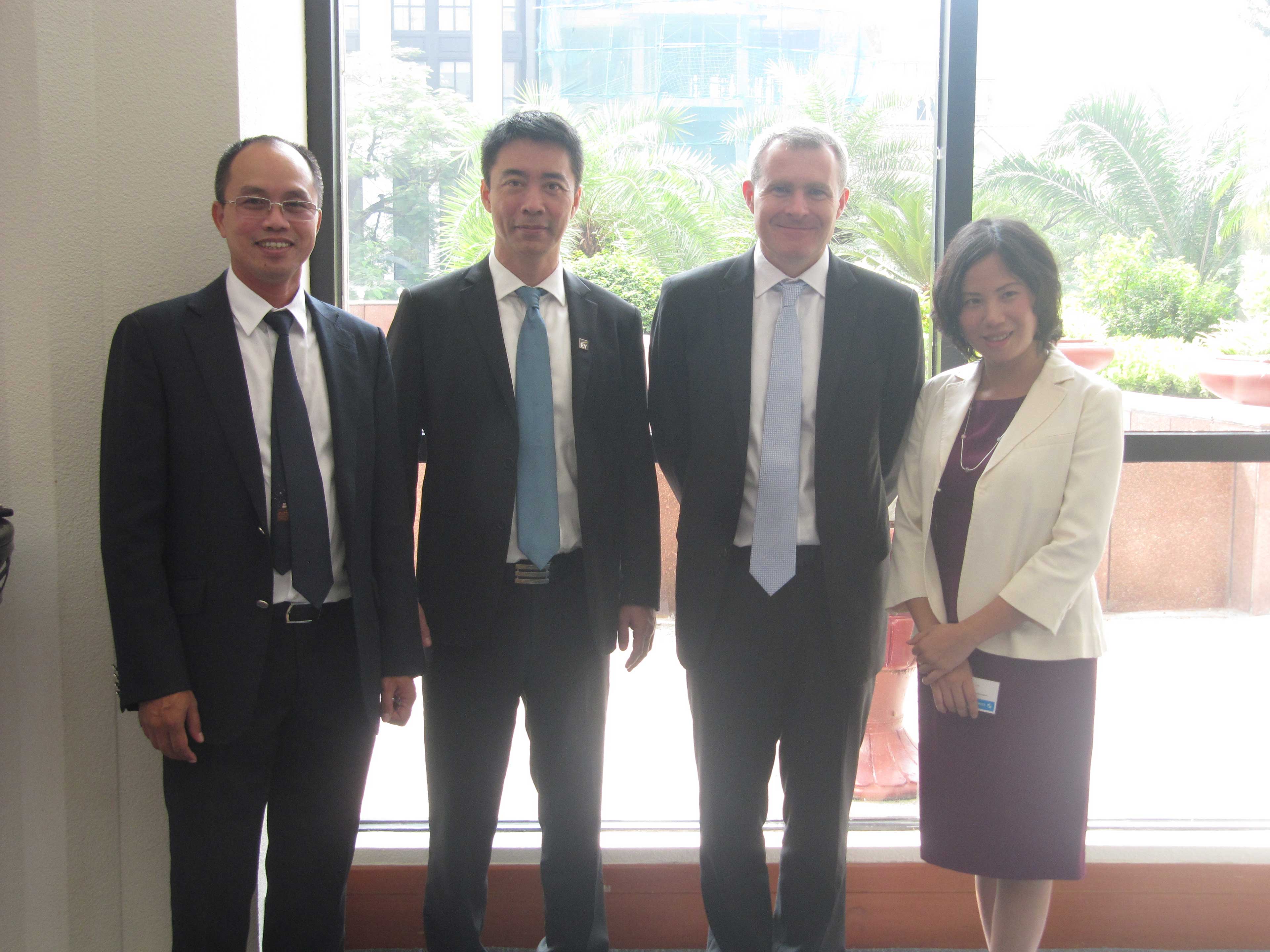
Part 2
Solid foundations to reach for the sky
Transparency above all | Exceptional services | The first and only
Transparency above all
In 2007, Vietnam witnessed the largest initial public offering (IPO) in the history of its insurance industry. Bao Viet Finance and Insurance Group (Bao Viet Holdings) attracted more than 20,000 investors who bought shares at the unit price of VND67,800, far higher than anticipated. Bao Viet leadership attributed this success to transparency, saying it was essential to the IPO outcome.
Following Vietnam’s joining the WTO in the same year, the IPO was a necessary step taken for Bao Viet to find potential investors and leverage their resources and expertise to develop the local insurance market. The IPO was also a requirement for state-owned enterprises like Bao Viet to spearhead the Government’s ambitious international integration initiative.
EY Vietnam’s capacity as the auditor of Bao Viet helped the Group realize its IPO dreams by way of a thorough audit of their financial health. With EY Vietnam’s assistance, Bao Viet wrote an IPO prospectus that provided potential investors with accurate and reliable information, supporting them in making informed decisions.
The preparation of the IPO prospectus and auditing the financial statements of the Group within a short period was not an easy undertaking. Bao Viet Group has a vast number of member companies, subsidiaries and affiliated entities across the country.
Delivering a comprehensive audit within such a short time has been a challenge for the EY team.
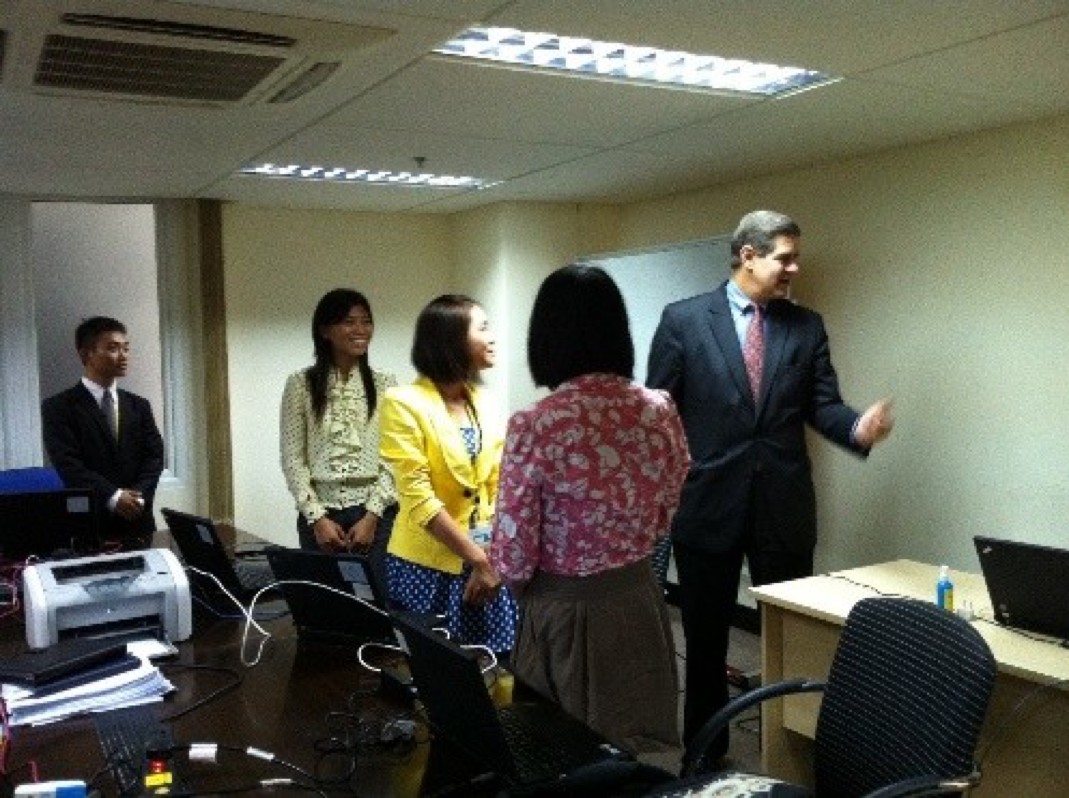
Former EY Global Chairman Jim Turley at the Bao Viet headquarters, 2011
Bao Viet Group is one of the largest financial and insurance corporations in Vietnam, which made the workload for each audit extraordinary. In addition, the reporting deadline was very tight so we can meet IPO requirements. It was a huge challenge. With tight cooperation between Bao Viet and EY, as well as tireless efforts on both sides, the audit was a success. Customers have obtained transparent, accurate, and timely financial information that met regulatory requirements. ‘Fire proves gold, adversity proves men’, as the Vietnamese saying goes. EY Vietnam’s team had risen to the challenge and we came away stronger, ready for similar projects.
In addition, EY Vietnam also supported Bao Viet management in familiarizing themselves with rigorous international benchmarks for financial reporting through leadership training and IFRS-related education. In the following, Bao Viet successfully converted financial reporting from Vietnamese Accounting Standards (VAS) to International Financial Reporting Standards (IFRS), fulfilling strategic foreign shareholders’ requirements.
While working with Bao Viet, EY Vietnam has also provided support in various areas, such as strengthening the capacity of its accounting and financial staff and enhancing corporate governance and internal control via timely recommendations raised in management letters.
Throughout our cooperation since 2005, Bao Viet has grown into one of the few institutions in Vietnam that can provide a full range of financial services, including insurance, banking, fund management, brokerage and investment.
The Group is also one of the first state-owned enterprises to have found a foreign strategic shareholder. The first strategic investor was HSBC Holdings, followed by Sumitomo Life Insurance Company which currently holds 22.09% in Bao Viet Holdings. In addition, in its 2021 edition of the 50 best listed Vietnamese companies, Forbes Vietnam recognized Bao Viet as a leader in the insurance industry. This is the ninth consecutive year that Bao Viet appears as the only insurance company on the list.
Bao Viet Group highly appreciates and is very satisfied with EY Vietnam's services. EY Vietnam's staff and auditors are highly qualified and enthusiastic, always responding to all progress of issuing post-audit reports to Bao Viet Group. EY Vietnam's audit service has brought a lot of added value to the Group. Since 2019, in addition to timely post-audit reporting to Vietnamese and international accounting standards, EY Vietnam has been advising Bao Viet in areas such as insurance, which is still a very promising area in Vietnam. The management letters prepared for the Group’s leaders are instrumental in improving management, administration and business efficiency. Bao Viet Group is very pleased and appreciates the services of EY Vietnam.
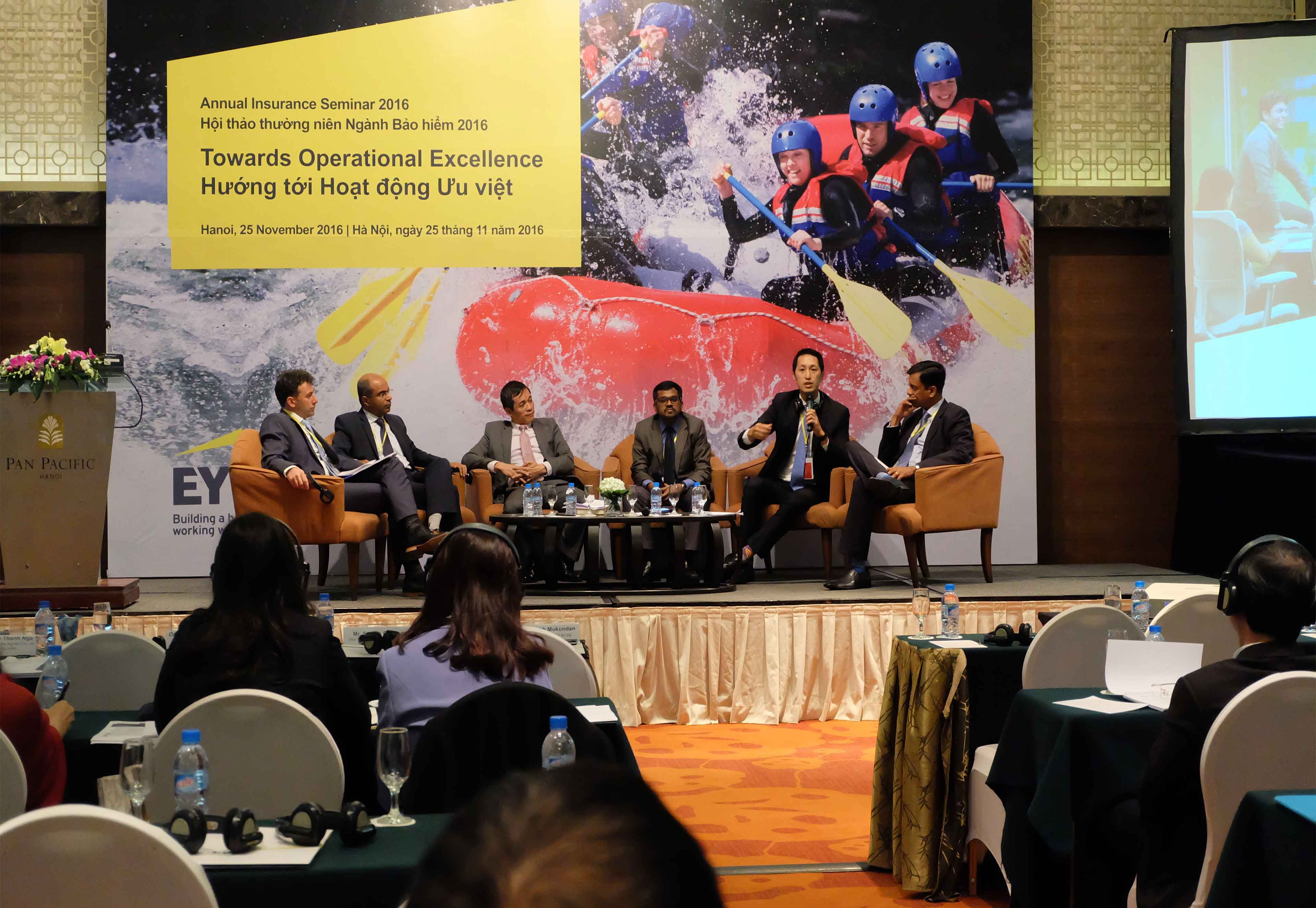
An annual insurance seminar co-hosted by EY Vietnam and local authorities
Starting in 2005, with our first and biggest client, Bao Viet Group, our insurance team has built an impressive legacy in the local insurance sector ever since. Since 2006 onward, EY Vietnam has maintained its leading position as a provider of high-quality professional services for the insurance industry in Vietnam.
In 2011, EY Vietnam signed a Memorandum of Understanding (MOU) with the Insurance Management and Supervision Department under the Ministry of Finance of Vietnam. Through this MOU, EY has worked closely and supported the regulator in a variety of capacity building initiatives in the insurance sector such as risk management, fraud investigation management, insurance computing services and performance improvement. EY also co-hosts with the insurance industry's annual conference management agency with on the latest industry trends.
According to EY Vietnam Information Center in 2020, EY Vietnam has been providing services to 25 out of 32 non-life insurance companies, all life insurance companies, and 2 foreign insurance brokerage companies operating in Vietnam market.
EY Vietnam has been doing more than simply keeping pace with the local insurance market – our services have helped the industry mature. When EY set foot in the market, the local life insurance industry was at a nascent stage, with relatively few foreign insurers having a small presence in Vietnam. However, the industry has emerged as a rising star in Asia.
Between 2000 and 2020, the growth of the Vietnamese insurance market significantly outpaced other countries in the region and the world. The overall growth rate has been maintained for an extended period, unaffected by the global financial crisis and other negative external impacts.
The year 2020 was the seventh consecutive year that premiums in the Vietnamese insurance market outpaced GDP growth, averaging 20%. As a result, total assets in the industry reached VND573,000 billion, up 23.81% from previous year, according to the Vietnam Insurance Market Yearbook 2020 issued by the Insurance Supervisory Authority.
EY Vietnam was among those sowing the seeds for this outstanding accomplishment with several early investments in the market. The firm has gone to great expense to develop our long-term capabilities, assurance expertise, and other consulting capabilities. Thanks to these politic moves, we are now years ahead of the competition and are known as the leading professional services provider for the insurance industry in Vietnam.
Moreover, EY Vietnam has been updating its service offerings to remain relevant to local demands. This mixture of global expertise and understanding of local circumstances distinguishes us from our competitors.
Exceptional services
Aside from quality assurance, EY Vietnam provides a wide variety of advanced consulting services to insurance clients. Many of our clients have said our service exceeded their expectations. For instance, the board of directors of Shinhan Life Insurance, an affiliate of Shinhan Financial Group Co Ltd, was pleasantly surprised when the company was granted a license by the Ministry of Finance within only six months, the fastest processing time ever for a foreign insurance firm.
EY Vietnam set up a dedicated insurance advisory team to support Shinhan in its early days in Vietnam. The relationship started in 2016 when EY Vietnam assisted the client in market entry assessment. The EY team provided Shinhan Life with crucial information about Vietnam's insurance landscape and essential insights. Consequently, the client selected Vietnam as the first destination of its overseas expansion. The firm also chose EY Vietnam to assist its actual entry in 2020.
EY Vietnam's assistance in obtaining the establishment license for Shinhan Life set solid foundations for a healthy relationship. Shinhan handed the responsibility of post-licensing work to EY again, knowing that the team could face any challenge.
EY completed the post-licensing work, enabling Shinhan Life Vietnam to launch its life insurance business in Vietnam on 25 January 2022, despite COVID-19. This demonstrated EY Vietnam's determination and shared values to help clients succeed even in the most extraordinary circumstances.
Thanks to the support of EY insurance team, we explored the market status and entry methodologies, and carefully established a greenfield strategy. Based on EY dedicated efforts and expertise, we were able to obtain the establishment and operation license of a new life insurance company from the Ministry of Finance in Vietnam. I definitely believe that we will be able to maintain and develop a friendly relationship based on the partnership in the future.

Over the past 15 years, EY Vietnam has built a strong reputation for quality among insurance companies. It now serves as a one-stop-shop repository of solutions for any insurer who requires any type of consulting service, from bancassurance (a combination of bank and life assurance companies) to IT-related services.
In recognition of its extraordinary contributions, EY was named the Best Insurance Consultancy Firm by Insurance Asia News in 2021. The award highlights the tireless work of the EY Insurance Asia team in the Asia-Pacific, particularly the work of the Insurance Vietnam team
As a foreigner living in Vietnam, my definition of success for EY is how we are able to help the financial service industry achieve an international reputation and how we can make the potential of the Vietnamese insurance industry known to the world. The industry has come a long way over the past 20 years, but there is still a long way to go before it catches up to the best in the world. As a professional service provider, we are committed to playing a key role in bringing the Vietnamese insurance industry to a global level. We will continue to work with regulators, local authorities, and market players to make this happen.
The first and only
An age-old rule of business is that opportunities for growth come with trust. EY Vietnam has proven this beyond a shadow of doubt. Having recruited, nurtured and developed a pipeline of exceptionally talented professionals, EY Vietnam has earned the trust and confidence of local credit institutions.
Right from the early 2000s, through a program delivered by EY APAC, and especially EY Hong Kong, the Vietnam team received training in advanced finance and got full access to the latest relevant materials on loan appraisal, the internal credit rating system and the Basel Accords, etc. EY Vietnam has invested significant resources into assisting the country with its transition and integration into the global economy. The company has helped transform the local market by delivering the latest insights and best expertise through auditing and other consulting services from other markets. Over time, EY Vietnam has become a reputable consultant not only for financial institutions but also for regulatory agencies, especially the State Bank of Vietnam (SBV).
EY Vietnam’s early projects for the SBV involved the development of an inspection and supervision framework, along with internal credit ratings, personnel training and risk management capabilities. These projects have created the foundation and the principles the regulator used to develop the body of laws and legal documents related to security and safety in banking. Many of these regulations are still in force today.
At its seventh session, the XII National Assembly passed the Law on the State Bank of Vietnam and the Law on Credit Institutions 2010, replacing the previous laws. These two vital banking laws have set the grounds for continued innovation and met the requirements for deeper international economic integration.

In the early 2010s, private credit institutions started expanding both in number and size. This triggered a wave of digital transformation and the application of advanced technology. This placed pressure on the SBV's internal management system to keep pace with market developments and the ongoing international economic integration.
To support it in modernization, the SBV received an Official Development Assistance (ODA) loan from the WB to implement the Financial Sector Modernization and Information Management System (FSMIMS) project with a total budget of close to US$72 million. EY Vietnam placed before several international bidders to win major components of the project, which was said to be the largest ever in value in the Indochina region.
The project consisted of 10 stages and would see the transformation of the entire IT infrastructure of the SBV. EY Vietnam was responsible for developing an overall IT architecture for the SBV and for inviting tenders to implement subprojects, including core central banking, integration, enterprise resource planning, human resources, document management and the data warehouse. After all stages were completed, EY proceeded to assess the skills gap and consequently conducted training for SBV staff.
The project seemed like an interminable marathon at the time. We had to set our best experts from the EY Global network on it. This was the first and largest transformation project implemented by EY Vietnam. Given its size and complexity, each stage was like a separate project on its own that we had to fit into a much larger framework. Assembling a team of multidisciplinary and multicultural experts from a wide age range was a challenge. However, that was only the start: it was even harder to connect them in this unique project. We had to establish good rapport where they could share insights and different perspectives on how the system should work in Vietnam while coordinating the various project implementation teams.
The biggest difficulty turned out to be change management. Any transformation project would change the entire operating model of the SBV. Changing the operating model would mean changing functions and responsibilities, the method of assigning tasks, or the roles outlined in procedural documents. Thus, effective change management would be essential for the success of the project.
The project has also set out new principles for database building, supporting the SBV in analyzing information and other inputs. The outcome analysis has also helped the SBV in performing its role in state management and formulating effective and timely market management policies while fulfilling its reporting responsibilities to the government and other national and international organizations.
The innovations brought by the project have also streamlined the bidding process as well as the process of pumping and withdrawing money from the interbank market.

This was a very large and complex project to implement. At the same time, it was so unique that there were no ready solutions available on the market. Commercial banks can purchase the systems they use but each country's central bank is different. Therefore, the FSMIMS project was aimed to design a unique core system for the SBV. At the same time, the project involved all departments and units of the SBV in the 63 provinces and cities. This required participation by all these stakeholders and the reconciliation of their widely differing opinions. This takes a great deal of time and effort. The main difficulty, however, was that the SBV had to strictly observe and comply with WB regulations throughout the implementation of the project. At the same time, the SBV also had to comply with Vietnam's regulations on ODA projects. The SBV project lasted for a long time, went through many stages, coordinated many components and auctioned a great number of bidding packages internationally. Many of these packages required careful collaboration between foreign experts and SBV organs as well as the project management board. Through the efforts of the project management board and the SBV, along with the active support of the main contractor, EY Vietnam, the project ended in success. We are very happy with the results and the WB lauded the project as an exemplary IT project to be used as a model for similar projects in other countries. I also highly appreciate the efforts and enthusiastic support of EY Vietnam. I would especially like to thank Cuong Dinh Tran, Country Managing Partner, EY Vietnam for impartially supporting us at the most difficult times, without regard to the extra cost or effort.
Our aim throughout the project was not only to instill the proper transformation mindset at our client but to transform ourselves as well. We have embraced the challenge and made sufficient investments in our technical knowledge and talent pipeline to meet the requirements of this special client.

Part 3
Taking roots to reach for the sky
Untapped opportunities | A new level of maturity | Leading the market | Transitioning to the future
Untapped opportunities
The years between 2004 and 2010 were extremely memorable for EY Vietnam as we simultaneously delivered audit services for all state-owned banks and numerous other leading commercial banks.
Spotting the untapped opportunities in the financial sector, EY Vietnam has devised a comprehensive plan to provide world-class services to some of Vietnam’s largest banks, all of which were innovating and applying global best practices.
Joint Stock Commercial Bank for Foreign Trade of Vietnam (Vietcombank) was one of the leaders in this. To this day, Vietcombank is the first name to come to mind for international organizations thinking about Vietnam because it was the first local bank to implement international payments. EY Vietnam started providing audit services for Vietcombank in 2001. The firm had to bring to bear significant domestic and international resources to accelerate the bank with fast international payments at the highest quality standards.
The success with Vietcombank encouraged EY Vietnam to provide the same support to the general market. The firm has since accumulated significant expertise and invaluable practical experiences with all of Vietnam’s state-owned banks such as the Bank for Investment and Development of Vietnam (BIDV) in 2003, Vietnam Joint Stock Commercial Bank for Industry and Trade (Vietinbank) in 2004, and Vietnam Bank for Agriculture and Rural Development (Agribank) in 2004.
On one hand, EY Vietnam has leveraged the regional network of EY experts, inviting colleagues from Singapore, Hong Kong and India for technical support. On the other hand, EY Vietnam has developed a team who have been fully conversant with the local financial market. This perfect balance of local and international expertise is one of the outstanding advantages of EY Vietnam in the market.
With our support, Vietcombank became the first bank in Vietnam to be audited in accordance with the IFRS and thus meet the requirements of international integration. This also enabled local banking reforms envisioned by international organizations such as the WB and the Asian Development Bank (ADB).
EY Vietnam’s support for client banks has fast-tracked their eligibility for international grants to restructure the Vietnamese banking system. The international-standard auditing and fully transparent financial statements produced by EY Vietnam for these banks have instilled confidence in international organizations. This has been instrumental in convincing them to provide grants and capital to Vietnam's growing financial market.
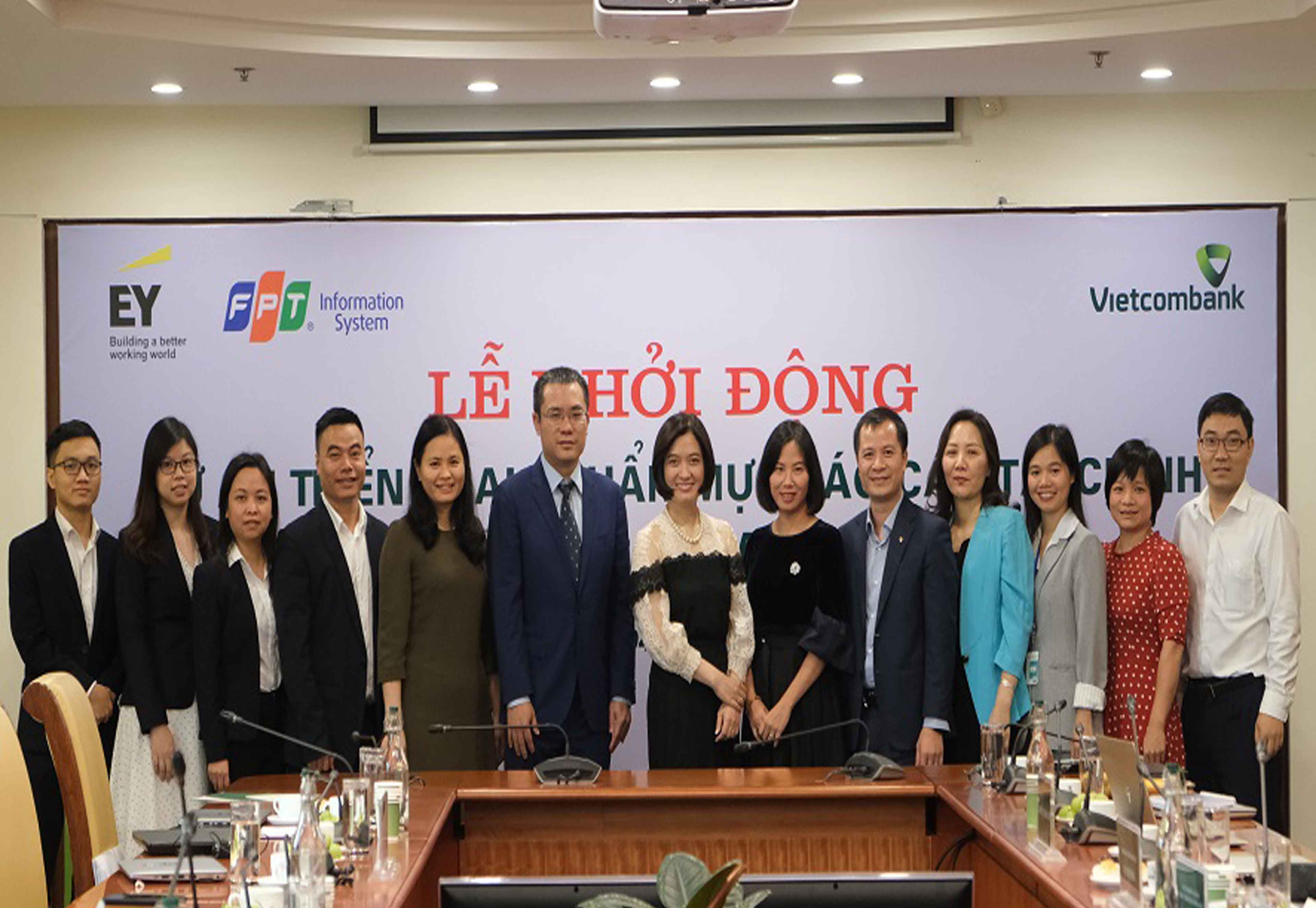
The kick-off of the IFRS 9 project with Vietcombank
A new level of maturity
Vietnam’s joining the WTO in 2007 demonstrated its determination to integrate into the world economy and ensure its global competitiveness. International integration has certainly unlocked opportunities for domestic banks and credit institutions, providing them with access to foreign markets and allowing them to launch cross-border services.
In 2008, after a number of years accompanying banking sector while integrating into the global economy, EY Vietnam officially established a dedicated human resources team to support clients in financial services. Ever since then, the FSO team of EY Vietnam remains the only specialized unit in the market to provide services to businesses in the financial and banking sector in Vietnam.
After seven years of providing services to the financial sector, in 2008, EY Vietnam decided to establish a dedicated team for banking, insurance, securities and fund management. The team has accumulated vast sector-specific knowledge and expertise and became real experts in the financial sector. Moreover, the local FSO team works closely with the EY Global FSO team to leverage their international expertise and experience, and ultimately, offer the most up-to-date and finest financial services in Vietnam.
Economic development and international integration have also made the problems facing the banking sector more diverse and complex. As a pioneer, EY Vietnam is determined to bring the latest and most advanced services and solutions, addressing increasingly diverse requirements and challenges of clients in finance and banking in Vietnam.
In 2011, the FSO separated its financial advisory division from its auditing division and established FS Consulting-related services including a team of banking experts and consultants. FS Consulting has been rapidly growing, making EY the first company in the market to provide advanced consulting services such as financial management, risk management, operational efficiency assessment, advisory on construction and development of IT systems.
Our decision to separate the financial consulting unit from the audit division allowed both teams to specialize more deeply. This enabled us to serve the increasingly diverse and complex needs of our clients. We are where we are today thanks to the journey we have shared with our valued clients who have entrusted us with their confidence.
At the end of 2016, the SBV issued Circular No. 41/2016/TT-NHNN (Circular 41) regulating capital adequacy ratios for banks and foreign bank branches. This document signifies regulators’ awareness of the need to improve risk management capacity to enhance the resilience of the banking system. It prescribes the application of the Basel II Accord to the domestic financial system to create macroeconomic stability. At the same time, banks also realized that further integration and international capital inflows were contingent on the adoption of global standards, including in risk management.
The Basel Accords were issued by the Committee on Banking Supervision (Basel Committee), established by the central banks of 10 developed countries in 1974 in Basel, Switzerland. The Commission's primary role is to establish standards for risk management and safety for commercial banks, as well as monitoring standards for central banks, thereby enhancing the stability of the global financial system. Since the first Basel Accord (Basel I) was signed in 1988, the Basel Committee has repeatedly amended and updated its requirements and guidance, passing Basel II in 2006, Basel 2.5 in 2009 and Basel III in 2010, with adjustments and supplements in 2011, 2013, 2014, 2017 and 2019. The purpose of this ongoing adjustment is to ensure that the regulations closely match the circumstances and improve the management of critical risks for commercial banks.
Before 2016, operational risk, market risk and liquidity risk under Basel II were fairly new concepts for commercial banks in Vietnam. Most local banks did not know how to identify, measure and assess these risks. They were also hard-pressed to manage relevant reporting, come up with risk management methodologies or build a risk management model. More importantly, many banks did not know how to apply risk management practices to business on a daily basis.
Therefore, even before SBV issued Circular 41, EY Vietnam was already playing a key role in assisting local commercial banks with their transformation. The firm was the first among the Big Four to provide Basel Gap services to more than 15 domestic credit institutions. These services helped local commercial banks identify their shortcomings and the steps needed to align domestic risk management activities with advanced global practices.
After Circular 41 was issued, EY Vietnam also assisted credit institutions in strengthening their risk management capacity, in accordance with Basel II and III, through a range of services such as operational risk management, market risk management, partnership credit risk management, ICAAP (Internal Capital Adequacy Assessment Process), ALM (Asset Liability Management), IFRS 9, and many others.
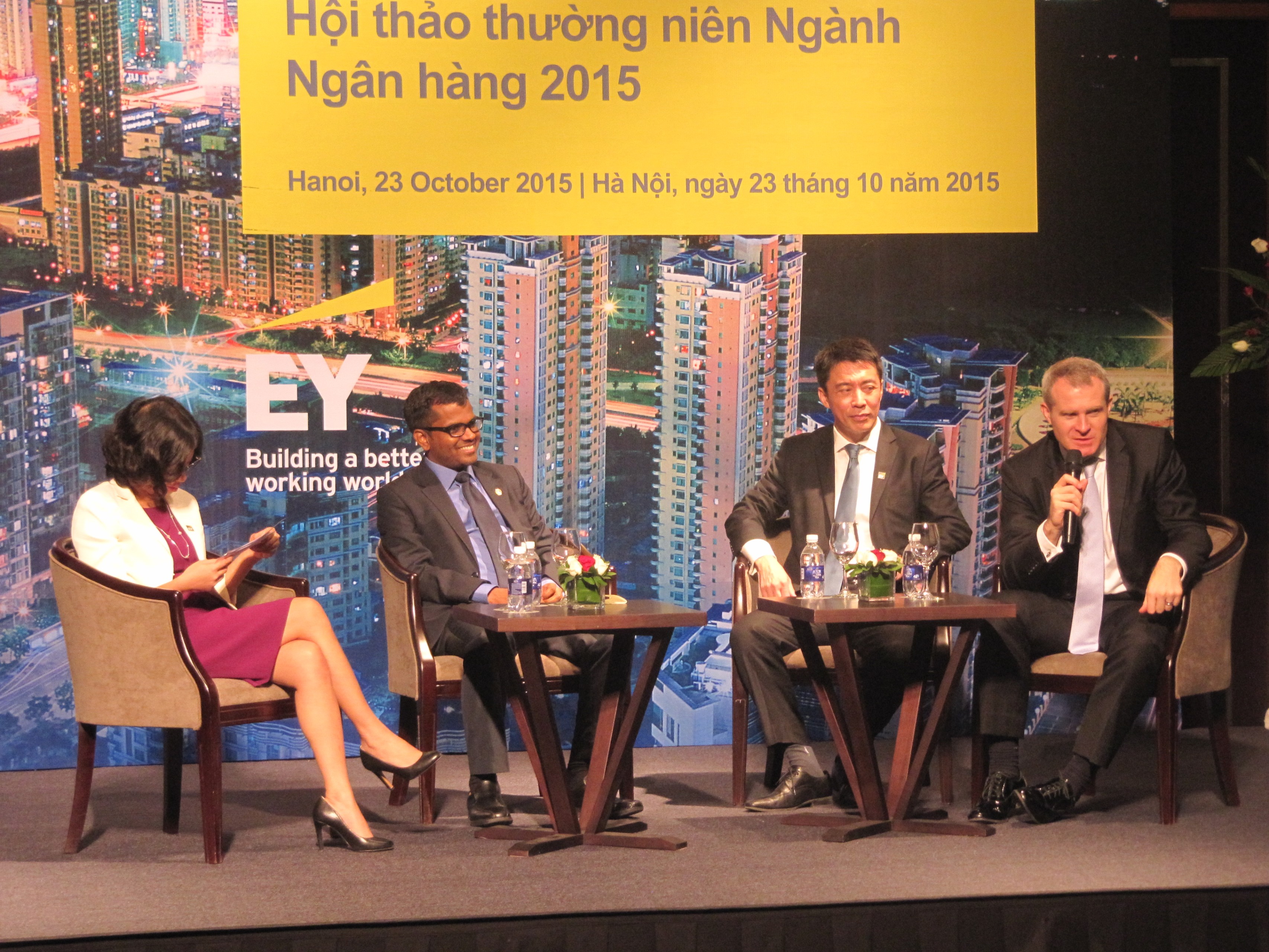
The Annual Banking Conference organized by EY Vietnam, 2015
hile consulting and supporting banks in their transformation, we have helped enhance commercial banks’ perspectives on risk management. Risk management is not an optional extra, it needs to be a routine task for any bank department. Good risk management will help commercial banks grow and develop sustainably. EY Vietnam is proud to have contributed to changing mindsets about risk management in the banking industry.
Six years after adopting Basel II, the banking industry is developing in a more sustainable direction, with risk management a key priority. Commercial banks have upgraded their risk management strategies to be more in line with global practices and standards. In doing so, they are making the financial system stronger and more resilient to external shocks.

The press conference “AEC & TPP - Which way for Vietnamese banks?” held by EY Vietnam, 2016
Leading the market
In 2018, Vietnam Technological and Commercial Joint Stock Bank (Techcombank) completed its $922 million dollar IPO targeting international institutional investors. The transaction was the largest ever in Vietnam at the time and still the largest ever banking IPO in Southeast Asia to date.
As part of preparing for the IPO, Techcombank committed to raising disclosure standards within the Vietnamese banking sector and chose to comply with the reporting requirements under IFRS 9, one of the two most demanding standards on financial instruments.
This standard was established after the 2008 global financial crisis by the International Accounting Standards Board (IASB) to tighten reporting standards on financial instruments to enhance safety levels of the financial system. Given the nature of banking industry, up to 95% of banks’ total assets are governed by IFRS 9, altering almost all key banking metrics, especially provisioning balances.
The IFRS 9 was effective since 1 January 2018. At the time, Vietnam did not require the preparation and presentation of financial statements under the IFRS. Thus, not many banks in Vietnam had the relevant knowledge or prepared the resources necessary for compliance.
Given the complexity of IFRS 9, Techcombank retained EY to help it meet this new standard. EY Vietnam collaborated with EY Malaysia to set up four concurrent parallel working groups: the Risk Management group, the Finance and Accounting group, the Modeling group and the Project Management & IT group. These four groups worked with the Techcombank team for 165 consecutive days to implement the voluntary compliance standard. In 2018, Techcombank was the only bank in Vietnam to publish IFRS 9-compliant financial statements.
Techcombank's IFRS 9 financial statements were one of the factors behind its impressive IPO, enhancing the bank's position in the eyes of the foreign investor community. This was also a milestone for EY Vietnam as it was the first domestic project to fully comply with IFRS 9 standards.
For many years, we chose to work with EY because of the company's extensive experience and history in Vietnam. EY has consistently provided Techcombank with high standards of service through many of our major milestones including supporting us adopt the new IFRS 9 accounting standard which helped us elevate disclosure standards in Vietnam and contributed to the success of our 2018 IPO. We have been able to consistently count on EY Vietnam as an important partner in supporting us with the right personnel and expertise to deliver results and outcomes during our multi-year transformation journey.
As a professional organization, EY Vietnam was able to find the right personnel to help us handle the requirements of these complex projects. Working with competent and reliable partners is critical for any milestone or any important project which needs to be achieved when embarking on a transformation journey.
After Techcombank successfully converted its financial statements to IFRS 9 standards with advisory from EY Vietnam, several major domestic banks opted to follow suit, including Vietcombank, VP Bank, MB Bank, Tien Phong Bank, SeaBank and Maritime Bank.
EY Vietnam has gained Techcombank’s trust by not only providing exceptional services but also experts with sector-specific expertise. The durable partnership has gone through many milestones of the bank and continued to these days.
Each EY service line carries significant historical value as they are tied closely to the development of the banking industry and financial enterprises. IFRS and IFRS 9 standards have improved the safety of the financial system, and digital transformation consultancy from EY Vietnam helped banks, credit institutions and businesses operating in the financial industry resolve strategic problems and implement digital solutions.
Transitioning to the future
Many of us still remember $NAP, an end-to-end digital lending app that completely digitized the lending process, from filing and appraisal to disbursement in about 10–15 minutes.
$NAP is the result of a partnership between FE Credit, a consumer credit company owned by Vietnam Prosperity Bank (VPBank), and multiple fintech companies, with research and consulting from EY Vietnam.
The benefits of the model in reducing operating costs and improving customer experience are easy to see, but few people know about the myriad technological challenges that had to be addressed before $NAP could come online. Establishing databases, identifying the technologies suitable to the Vietnam market, ensuring compliance with fintech regulations – all of these and more the partners and EY Vietnam had to resolve to create this iconic app.
FE Credit was founded in 2010 as one of the first consumer lenders on the market. However, at the time, loan approval processes in Vietnam took around four to five days with multiple complicated steps. At the time, the same processes in China and India took only 10 to 15 minutes thanks to heavy investments in consumer lending processes.
Through research and consultancy from EY Vietnam, FE Credit has worked with fintech companies and applied advanced practices in the consumer finance industry to create a closed digital lending application.
There have been many challenges to deploy the first and arguably the most successful automatic lending application to date. In Vietnam, there is no synchronous resident database system to support eKYC. In addition, as a completely new application in Vietnam, the entire platform had to be built from scratch. Moreover, as Vietnamese users had never used an app like $NAP before, the application had to be developed with an intuitive, user-friendly design.
With the new loan experience, $NAP quickly attracted consumers after its launch as it addressed many of the inadequacies of the traditional lending model. At the same time, $NAP helped FE Credit significantly reduce the cost of acquiring new customers.
The difficulty of the project with FE Credit lay not only in finding the right technology solutions for the domestic economic context but also to comply with the law. At the time, many fintech regulations were unclear and many issues were still unregulated. Convincing regulators and state bank leaders to approve this new application was a huge challenge.
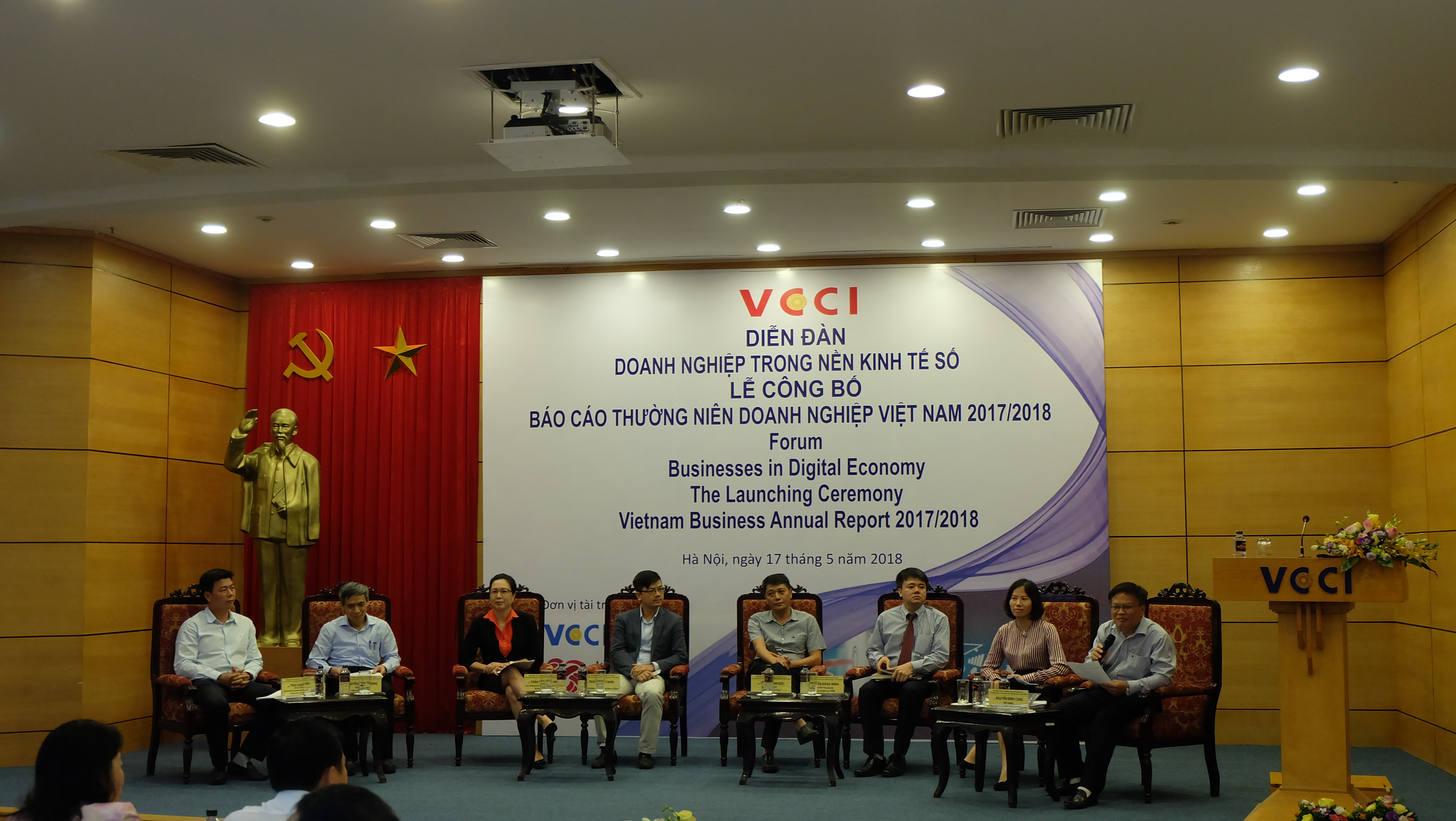
EY Vietnam attended the Businesses in Digital Economy Forum, 2018
Digital technology and the innovative business models of the Fourth Industrial Revolution (Industry 4.0) are profoundly redrawing entire industries. Digital transformation has become an important driver of financial institutions, requiring them to innovate and apply new technologies across their operations.
Recognizing this inevitable trend, Vietnam Investment and Development Joint Stock Bank (BIDV), an EY Vietnam client since 2003, has raised ambitions to become the best digital platform in Vietnam and make it to the top in the region. To realize this ambition, the bank has made large investments in its digital platform while digitalizing its operating apparatus.
At the end of 2019, BIDV selected EY Vietnam as the consultancy and strategic development unit for its Digital Transformation Strategy Consultancy project for 2020 – 2025 with a vision to 2030.
This was one of the largest digital transformation consultancy projects in the financial market at the time. Difficulties were inevitable and, in fact, expected. The project has affected all activities of the bank, requiring the participation of all leaders, especially senior leaders. The resulting diversity of visions and orientations made it difficult to find a common direction. The proposals of EY Vietnam must be really convincing for BIDV's leadership team to come to a consensus.
Besides, digital banking requires flexible thinking and solutions that are applied synchronously across the system, which is no easy feat.
After more than a year of implementing the project with the participation of EY experts from the region, EY Vietnam has successfully developed a digital transformation strategy for BIDV. Immediately after the end of the project in early 2021, BIDV's Board of Directors issued an internal directive to quickly arrange resources and begin implementation throughout the bank’s system within five years.
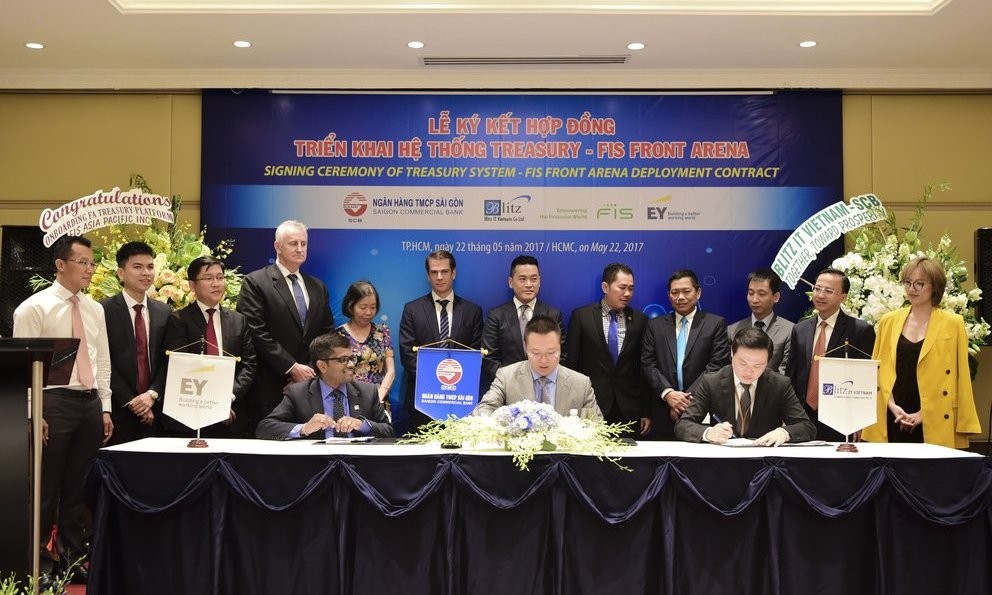
EY Vietnam has always been a close and important partner, accompanying BIDV at each milestone in our development. BIDV would not be where it is today, were it not for partners like EY Vietnam. The digital transformation consultancy project was implemented at the height of the COVID-19 pandemic, which rolled unique obstacles in the way. However, EY international and domestic professionals have made great efforts, coordinating with the Digital Transformation team, the Digital Banking Center, BIDV to successfully implement the project on time. This was a key project of our Digital Transformation Strategy to 2025 with a vision to 2030. The BIDV Board of Directors has also issued Resolution No.468 and the Director’s Directive on Digital Transformation with very detailed plans between 2021 and 2025, with a vision to 2030. I hope this project will signify a turning point for BIDV. I personally greatly appreciate the efforts and the technical expertise of the local and international EY professionals who have supported us in this digital transformation.
EY Vietnam has been a close partner of BIDV for many years now. EY not only accompanies us in audit projects but also provides consulting services for our development. They have been instrumental in the success of our digital transformation strategy. This is a complex, comprehensive strategy and one of BIDV’s most important strategies in the digital era. We appreciate the dedication, enthusiasm, and knowledge of EY experts supporting the development of BIDV.
The BIDV project is the largest and most comprehensive digital transformation project that EY Vietnam has implemented in the past 30 years with domestic credit institutions.
Earlier, EY Vietnam, along with McKinsey, also provided strategic consultancy for Vietinbank. Accordingly, EY Vietnam has joined McKinsey in proposing strategic pillars for Vietinbank for the period between 2014 and 2019 and proposed an operating model to realize the objectives under these pillars.
Not only supporting credit institutions and enterprises in implementing digital transformation, EY Vietnam has also been advising the SBV to develop a digital banking strategy for the Vietnamese banking industry in the period of 2021-2025 with a vision to 2030, under the sponsorship of the German Agency for International Cooperation (GIZ). The resulting Decision No. 810/QD-NHNN was issued by the SBV on 11 May 2021.
Through this project, EY Vietnam has contributed to the comprehensive renovation of the management activities of the SBV by promoting the effective use of Industry 4.0 technologies while meeting the government's digital transformation index.
Through these and other projects with clients like HD Bank, NAPAS and LINE Pay Corporation, etc., EY Vietnam has offered crucial consultancy to support digital transformation, the application of digital technologies and the creation of digital strategies by financial institutions and fintech in Vietnam. To date, EY banking and capital markets clients include all state-owned commercial banks and wholly foreign-owned banks operating in Vietnam, as well as 28 of the 31 joint-stock commercial banks of Vietnam. The success of these projects is a special point of pride for EY Vietnam.
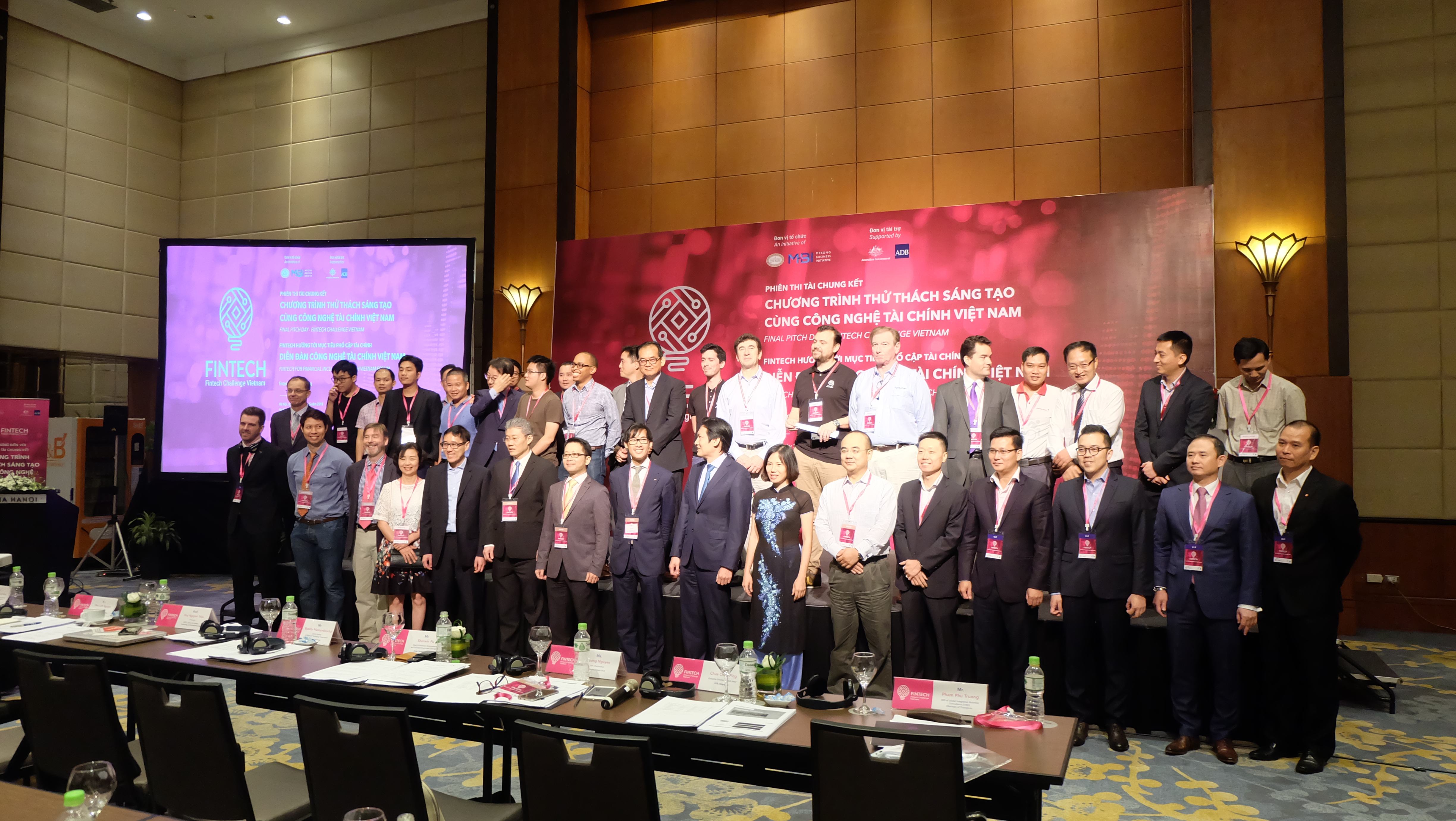
EY Vietnam attending a seminar on fintech
We not only provide services to meet the needs of the market and customers but also carry out activities to build trust and stability in Vietnam's financial sector. We work so that investors and regulators can peruse the financial statements of banks in full confidence of their validity and get the full picture of all aspects of risk and financial management. Today's achievements are the work of many generations of EY Vietnam members and are also thanks to the encouragement of many leaders of state management agencies, as well as the trust of customers over the years.
Earning the confidence and trust of regulators and credit institutions is the result of a long journey together, where we came to understand, share, and grow with the domestic financial sector. This is why the regulators consistently choose EY Vietnam to implement a variety of critical projects that are crucial to the sustainable development of the Vietnamese banking system.

